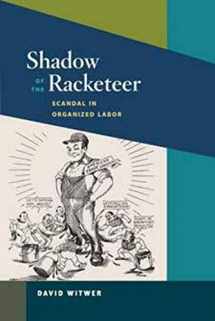
Shadow of the Racketeer: Scandal in Organized Labor (Working Class in American History)
Book details
Summary
Description
Shadow of the Racketeer: Scandal in Organized Labor tells the story of organized crime's move into labor racketeering in the 1930s, focusing on a union corruption scandal involving payments from the largest Hollywood movie studios to the Chicago mob to ensure a pliant labor supply for their industry. The book also details the work of crusading journalist Westbrook Pegler, whose scorching investigative work dramatically exposed the mob connections of top labor leaders George Scalise and William Bioff and garnered Pegler the first Pulitzer Prize for reporting.
From a behind-the-scenes perspective, David Witwer describes how Pegler and his publisher, the politically powerful Roy W. Howard, shaped the news coverage of this scandal in ways that obscured the corrupt ties between employers and the mob while emphasizing the perceived menace of union leaders empowered by New Deal legislation that had legitimized organized labor. Pegler, Howard, and the rest of the mainstream press pointedly ignored evidence of the active role that business leaders took in the corruption, which badly tarnished the newly reborn labor movement. Pegler's continuing campaign against labor corruption framed the issue in ways that set the stage for postwar political defeats, culminating with the 1947 Taft-Hartley Act, which greatly limited the power of labor unions in the United States.


We would LOVE it if you could help us and other readers by reviewing the book
Book review



